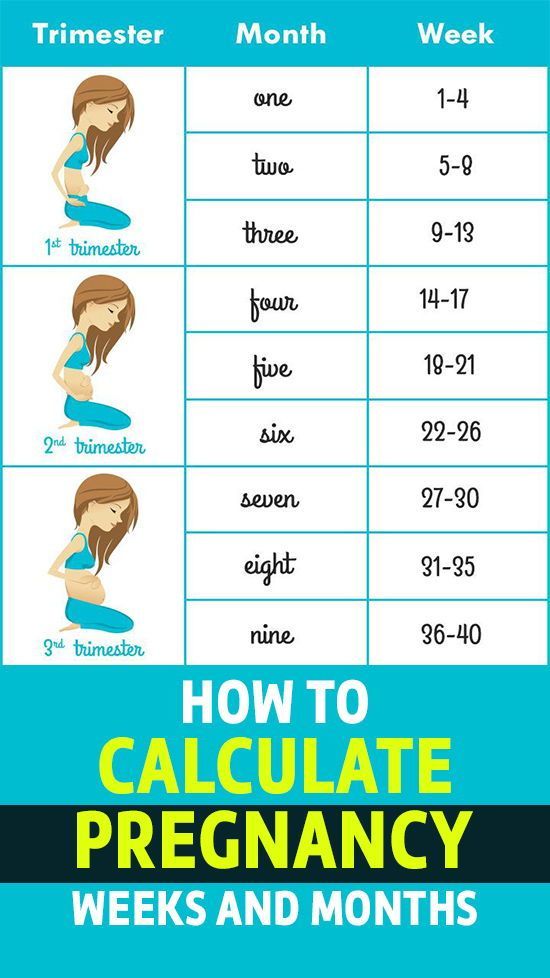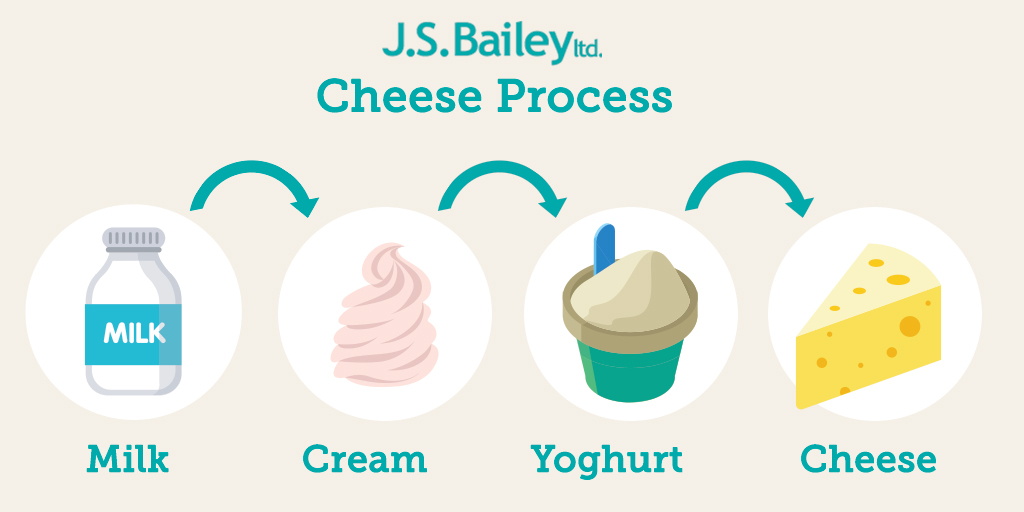How to parent a negative child
6 Tips to Help your Negative Child
Do you have a negative child?
When something nice is planned for your child, do they often focus on the negative?
Do they get upset and complain when anything gets in their way rather than see it as a challenge?
Do they give up as soon as things get tricky – and shout and moan and grumble?
Do they use the words ‘always’ and ‘never’ a fair amount and blame other people (particularly you!) for all their problems?
Then you have a negative thinker! Be a postive parenting coach.
The good news is that you can help them learn to be more optimistic! Use these tips every day to help your child change the way they think about the problems or challenges in life!
1. Stop complaining yourself.
Often children who think negatively have parents who think negatively. So the challenge here is to stop yourself moaning or complaining. If you catch yourself grumbling or being critical. Just stop.
If you can, try to make sure that everything that you say is positive, helpful, kind and points out the good in the situation. I’m not saying it’s going to be easy. However, if you want your child to change their negative thinking habit, this will show them that it’s possible. And you’ll be leading by example. Doing this will help your child realise there’s a different way of looking at problems. A more helpful, realistic, positive way. If you’re really up for a challenge, have a moaning box – like a swear box and put your child in charge – to help you realise every time you complain!
2. Help your child change the filter
Help your child question the sad, miserable or negative filter that they see things with. Like changing the filter in front of their eyes. You can help them see that at the moment their filter is only letting through the negatives. It’s not their fault – it’s just the way they’re seeing things. And they can change the filter to let through the more positive thoughts.
Help them see things from different angles. Look at different points of view. See if you can help your child get new insights.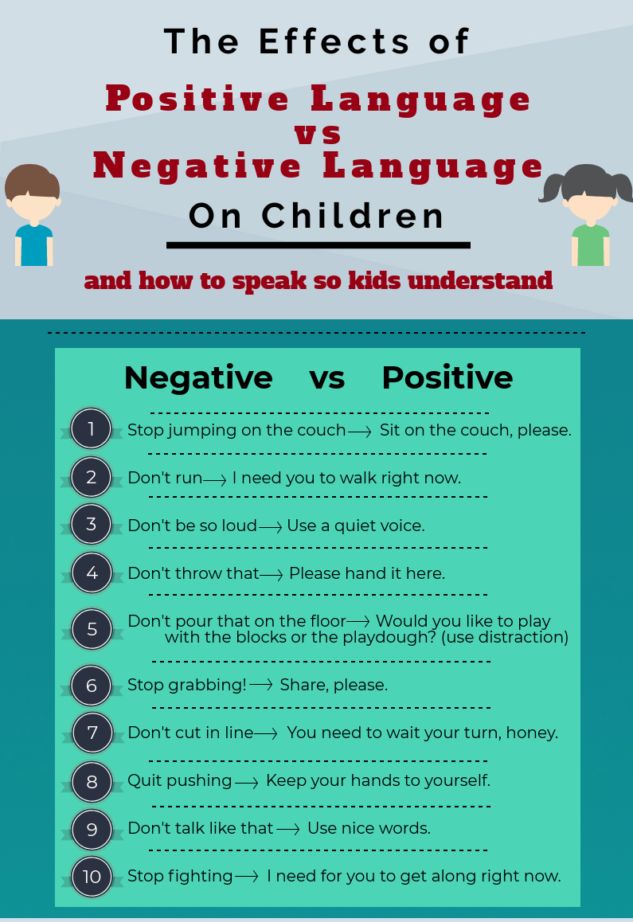 And you can explain that looking at things differently will boost their self-esteem and confidence, help them bounce back after setbacks, and cope better with disappointments. And they’ll be happier! Tell your child a story about a situation your child often feels negative about – such as coming second in a race – and describe how a child who thinks positively would feel very differently about the same situation. Then ask ‘which child is happier?’ Ask them how people would feel if they focus on all the obstacles or negatives in the situation, rather than focussing on the good things. Help your child realise they’ll be happier if they think more positive thoughts – Optimists are happier than pessimists
And you can explain that looking at things differently will boost their self-esteem and confidence, help them bounce back after setbacks, and cope better with disappointments. And they’ll be happier! Tell your child a story about a situation your child often feels negative about – such as coming second in a race – and describe how a child who thinks positively would feel very differently about the same situation. Then ask ‘which child is happier?’ Ask them how people would feel if they focus on all the obstacles or negatives in the situation, rather than focussing on the good things. Help your child realise they’ll be happier if they think more positive thoughts – Optimists are happier than pessimists
We cover self-esteem in the Calm Parenting Course in module 1 of 6.
A couple of games you can play are:
Gimme five – so when things are difficult they have to find five ‘good things’ about that situation. If it helps, they can make a fist, and put up their thumb and fingers with each positive they find.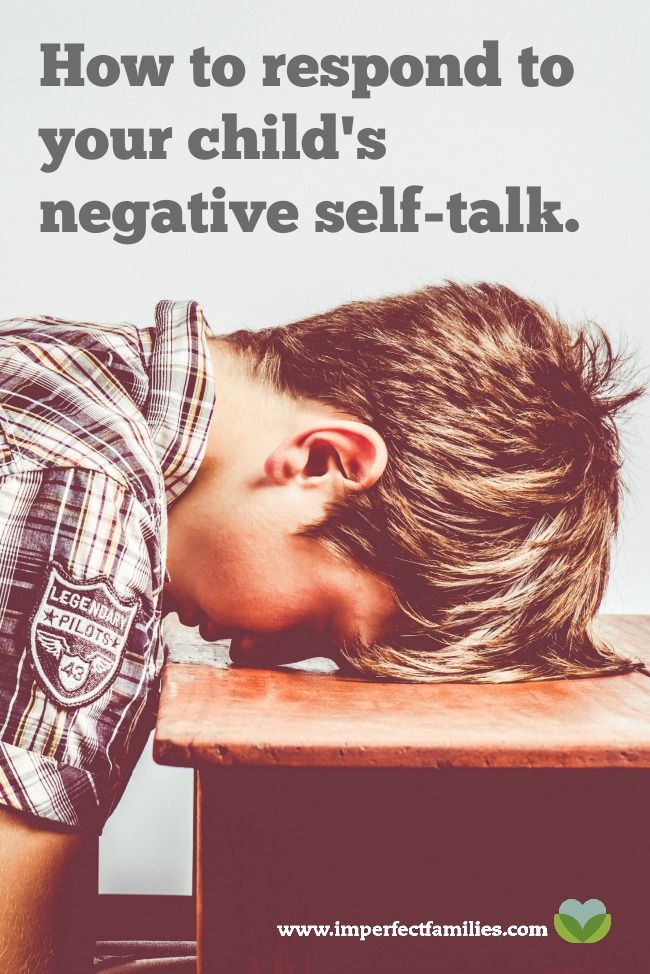 Then when they are moaning show them a closed fist, to remind them of the game. (But be careful not to do it in an aggressive way – that could look a bit threatening!)
Then when they are moaning show them a closed fist, to remind them of the game. (But be careful not to do it in an aggressive way – that could look a bit threatening!)
Unfortunately / fortunately. Think of a tricky situation – so you say UNFORTUNATELY the shop ran out of ice cream. Then your child says FORTUNATELY they sold cookies. Then you say UNFORTUNATELY they didn’t have any chocolate ones, and you continue for as long as you can. Of course, the trick is to be the one starting the game with, UNFORTUNATELY- so your child has to think of all the positives.
3. Develop an attitude of gratitude
Another idea is to help your child develop an attitude of gratitude. Research has shown that encouraging a child to write five things they are grateful for every day increases their life satisfaction, their happiness, and their grades at school. Perhaps they could write in a diary at the end of each day, five things that they’re happy about or grateful for. Or anything that went well that day.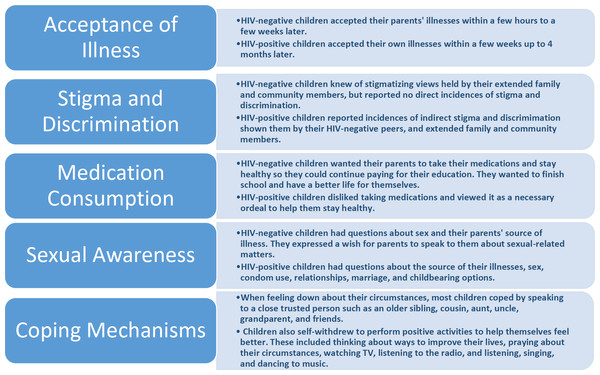 Or write a long list of things, and keep adding to the list every time they think of new things. They could write the list on a large sheet of paper, or have a small notebook with a different thing they’re grateful for on each page. Or when you have a family meal, everyone could take it in turns to say three good things that happened to them that day. When your child is encouraged to feel grateful for what they have, it changes the way they think. It helps them acknowledge all the positive things in their life. And put things in perspective when something goes wrong.
Or write a long list of things, and keep adding to the list every time they think of new things. They could write the list on a large sheet of paper, or have a small notebook with a different thing they’re grateful for on each page. Or when you have a family meal, everyone could take it in turns to say three good things that happened to them that day. When your child is encouraged to feel grateful for what they have, it changes the way they think. It helps them acknowledge all the positive things in their life. And put things in perspective when something goes wrong.
4. ‘Reality checking’ thoughts.
Children who have unhelpful thoughts about themselves are often stressed, and they may be quite negative about school or about things that are going to happen. So when you hear your child say things like ‘I hate myself’, ’I can’t do it’, or ‘I’ll never be able to learn this.’ A very simple way to help your child to change stressful thoughts is to teach your child to do a reality check.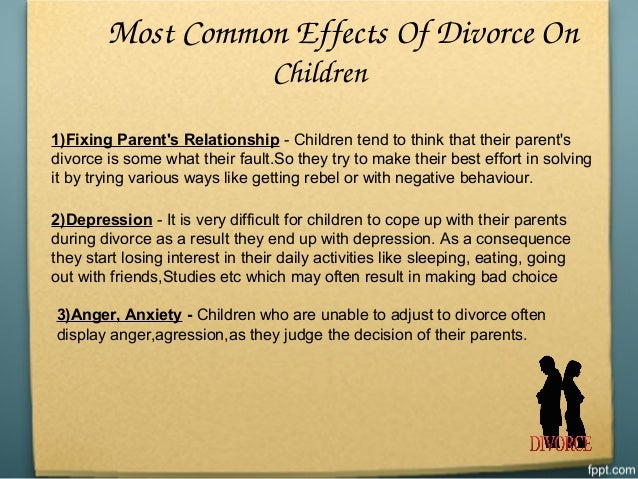 And get them to ask themselves:
And get them to ask themselves:
• What am I saying to myself about this?
• How true is it?
• Is it helpful to think this way?
• Where will it get me?
• What else can I think instead?
It is important not to contradict your child when they are stressed. Disagreeing with what they say just adds to their stress. However, when you ask your child these sorts of questions you get them to come up with other ways of thinking that may be helpful. Or perhaps ask them what their best friend would say about this situation? If they were to come round, what would they say?
5. Empathise and help them understand their emotions
When your child is being negative, you can help them by working out the emotion your child is feeling and guess why they feel that way.
‘It sounds like you’re really upset. It’s horrible when you lose something important like that.
‘You look really sad. It must have been upsetting that Jamie just ignored you – especially when you’re normally such good friends’
‘At the moment who you sit next to on the couch seems to be worrying you a lot.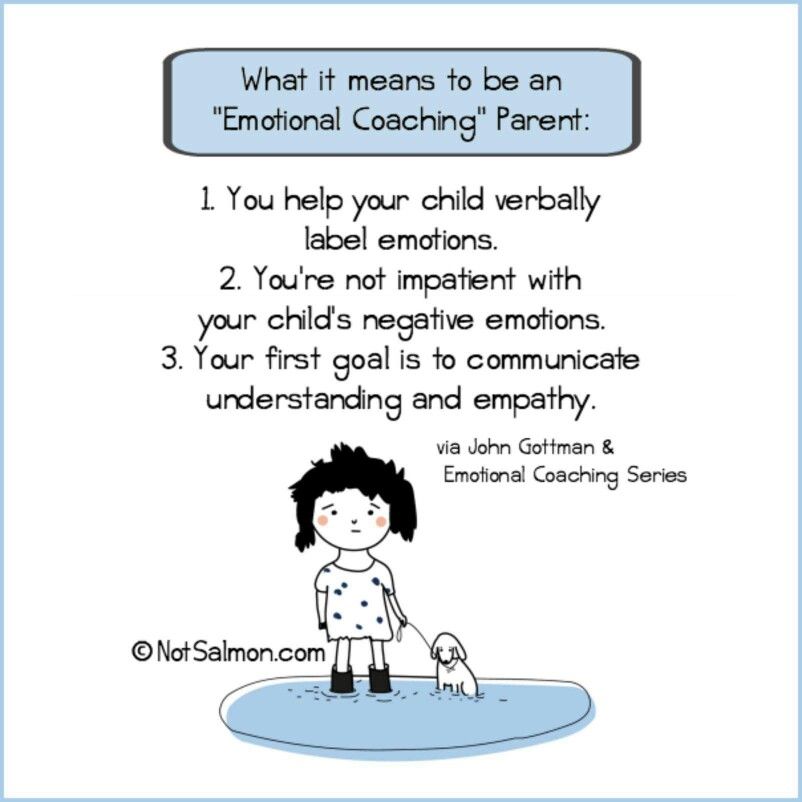 And it looks like it’s making it hard to look forward to the school trip.’
And it looks like it’s making it hard to look forward to the school trip.’
You empathise by saying things like: ‘You seem frustrated about that.’ ‘That sounds annoying.’ ‘That must have been hard to handle.’
Then don’t try to solve it for them. Just let them see that you recognise how they’re feeling. In the past, you may have got annoyed with your child for thinking negatively – but it’s hard for your child to change their thoughts. Empathising is the first step. When they’re negative, don‘t get angry or irritated, or try to talk them out of it. Don’t try to give them logical explanations about why they shouldn’t feel that way. Just let them feel heard and understood.
6. Help them solve their own problems
Then you could do some problem solving with them. Write the problem at the top of the page.
Get your child to think of lots of possible solutions, if you want to, you can add a few of your own ideas at the end. Have a look at the solutions then ask your child what might happen if they tried each one.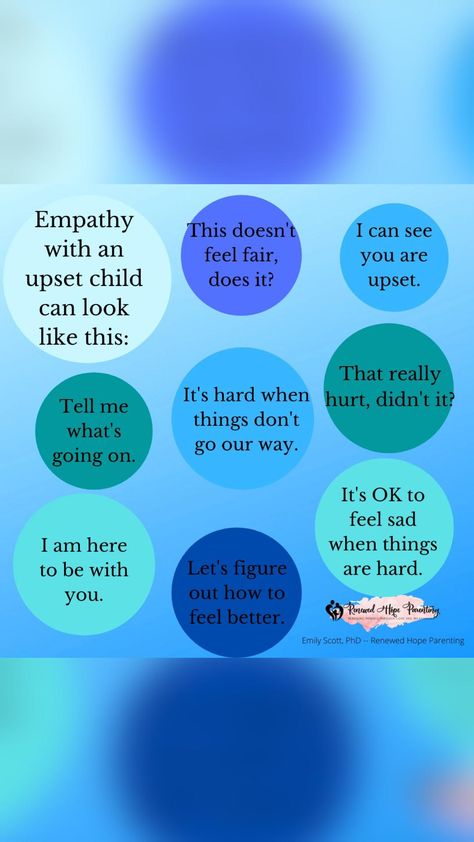 And then get them to choose which they want to try first.
And then get them to choose which they want to try first.
And you can do it with every little problem they come up with. That way, instead of the huge weight of worries they feel they have, they can start to look at each worry, one by one, and work out how to deal with it.
Do bear in mind though, if your child has always relied on you to help the sort out the problems, And you’ve always been happy to jump in and tell them what to do, they may find this difficult.
Do remember – change takes time. Your child has been used to thinking negatively. So be patient. And remember to keep going because these practical steps will help your child become more resilient and happy, and cope better with stress!
Do you have an angry child? Or a child who is anxious or stressed? Perhaps you would benefit from my private parenting classes.
How to Deal with Negative Children
Kids thrive on the connection they have with you, and if a child is always negative, they will usually get a reaction from their parents.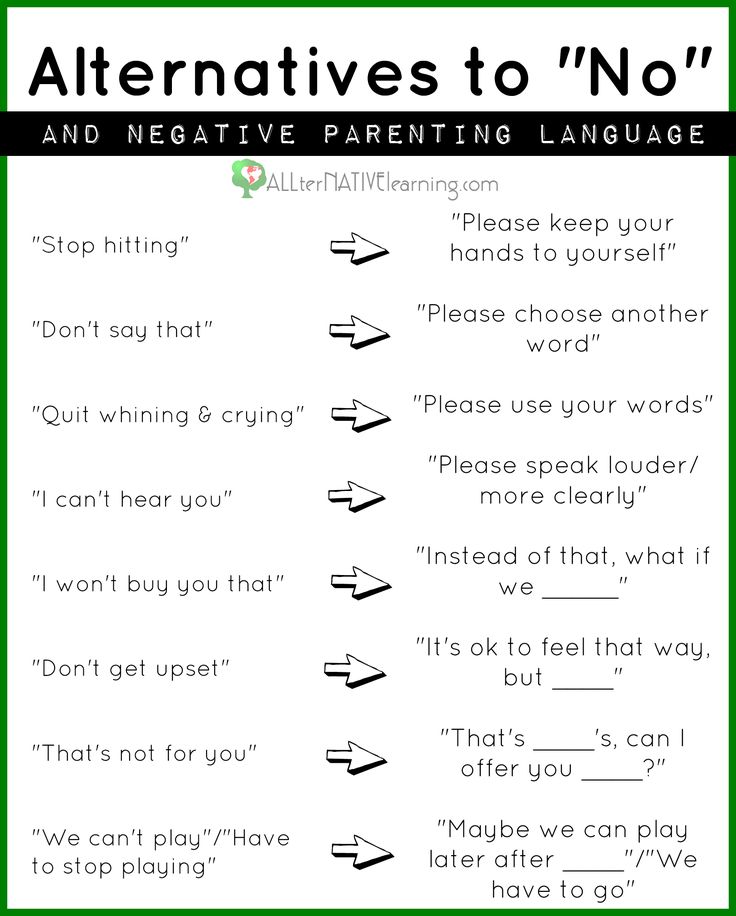
As odd as it sounds, sometimes the negativity spewing from your child’s lips is not meant to sound as bad as it does. They may simply want contact with you, albeit negative contact.
Some kids’ versions of, “Hi, how are you this morning?” come out as, “These eggs are disgusting!” While this is the way your child might want to connect with you, it doesn’t mean you have to enjoy it or listen to it endlessly.
When your child is a constant complainer, it can be emotionally exhausting. Your child may be loving, funny, and sweet, but the negative attitude stands out because it’s such an energy drainer. What’s worse, your mind starts futurizing, and you start thinking that their negative attitude will be a problem for your child down the road. Futurizing is the tendency to expect the worst outcome for your child, and it’s one of the most potentially destructive things that parents can do.
So, where does all this complaining come from? If your child is in their teen years, adolescence may be the culprit.
When your kids were young, they might have been enthusiastic about everything. You’d hear them say, “Mom, look at this! Wow, it’s so cool. I love it!”
But, once adolescence arrives, enthusiasm becomes uncool, especially around parents. Sharing their inner feelings means opening themselves up to you—and that is probably the opposite of what they want to do at this point in their life. Pushing you out is the name of the game.
And let’s not forget that home is the safe haven where all stresses of childhood can land. They may not tell you about their awful day at school, but they will complain that the food you cooked tastes awful. Yes, this is unpleasant, but remember, don’t take it personally—this could be a coping skill your child is employing.
As strange as it sounds, negativity and complaining are ways your child manages their anxiety. When your child complains, they feel better because they’re expressing themselves and venting their worries and fears.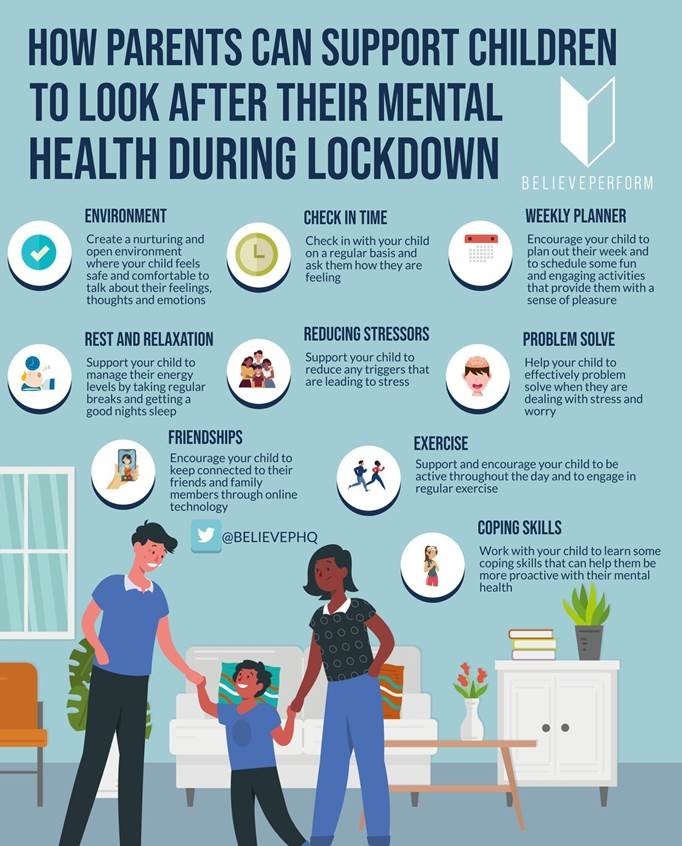 If you don’t react to it from your own anxiety, your child will eventually move on.
If you don’t react to it from your own anxiety, your child will eventually move on.
After you determine what’s triggering your child’s negativity, consider why you get so stirred up by it. Understanding why it upsets you so much is half the battle; knowing why it pushes your buttons will help you find more calm, effective ways of dealing with it.
Do you tend to be negative and critical yourself? Our kids’ behavior can often put a mirror in front of us, and it’s not always what we want to see.
Do you feel responsible as a parent to fix your child, shape them up, and make them happy? Do you futurize and get anxious and ask yourself if this is the life your child is destined to lead?
Understand that kids who exhibit oppositional or defiant behavior often use negativity to get everyone around them worked up, including you. Sometimes they respond automatically without thinking. In these cases, they’re not necessarily trying to make everyone upset.
But other times, they use negativity intending to make everybody else feel as miserable as they do. And you and your child’s siblings probably bear the brunt of it because home is that safe place where they can let out the absolute worst part of themselves.
And you and your child’s siblings probably bear the brunt of it because home is that safe place where they can let out the absolute worst part of themselves.
If your child spews a lot of negativity at home, the trick for you is not to get pulled into it because that’s what will give them the feeling that they’re in control, the feeling that they’ve got you, and you’re paying attention to them. You’re hooked.
Work hard not to indulge that part of your child. Recognize when your child is trying to push your buttons and try not to get pulled in. The temptation in the moment is to feed the mood by saying something like, “What’s wrong with you? You’re ruining the movie for everyone!” Instead, you can put limits on this negative behavior by saying to them:
“Not now, please. We’re trying to watch the movie.”
Or, you can say:
“It sounds like you don’t like it. Why don’t you go to your room and do something else?”
If your child continues to be defiant, you’ll need to try some enforceable consequences.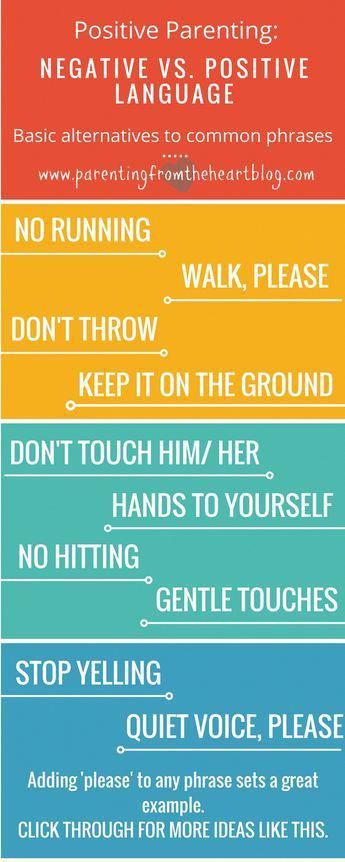 (Please read Parenting ODD Children and Teens: How to Make Consequences Work by Kim Abraham LMSW and Marney Studaker-Cordner to find out how to do this effectively.)
(Please read Parenting ODD Children and Teens: How to Make Consequences Work by Kim Abraham LMSW and Marney Studaker-Cordner to find out how to do this effectively.)
Define your boundaries and make clear to your child what you will and won’t do when they act out. Try to establish these boundaries without being critical: you don’t want to give your child the message that there is something wrong with them.
Easy? Not at all. I know this is hard. Sometimes, your child’s negativity and goading behavior can feel like a magnet pulling you in. I think the best thing to do is to be very conscious of what’s happening and stay out of that orbit. The main thing is, don’t give it legs.
Here are seven things to keep in mind when your child is being negative and is pushing all of your buttons.
1. You’re Not Responsible for Your Child’s Attitude
As a parent, you might feel you’re responsible for how your child feels and behaves. If so, the choices they make will feel very personal to you. You’ll find yourself trying to turn your negative child into a positive person, a “Negative Nancy” into the proverbial “Sally Sunshine.”
The result? They’ll work all the harder to resist you. This will cause you to push harder, creating more and more reactivity and negativity between the two of you.
Remember, you’re not responsible for the choices your child makes about their attitudes or behaviors. Instead, you’re responsible for how you respond to these attitudes and behaviors.
2. Don’t Be Judgmental About Your Child’s Complaints
As hard as it is, try not to be judgmental, critical, or defensive. So if your child says, “This food is gross,” don’t react by saying, “Why are you always so negative about everything? The least you could do is say thank you!” Instead, say something like this to them:
“Hmmm, I’m sorry you don’t like it,”
“Too bad you find it so unappealing.”
Or you can simply say, “Oh.” Nothing more needs to be said.
3. Don’t Personalize Your Child’s Complaining
Try as hard as you can not to personalize your child’s negative attitude and constant complaining.
Have a slogan in your head that helps you ignore some of their negative remarks. Try repeating the following to yourself:
“It’s nothing personal and nothing to worry about. These are just feelings.”
4. Schedule a Time To Listen to Your Child’s Complaints
If your child launches into a venting session when you’re stressed out or in the middle of something, be clear and direct that you are not ready to hear their complaints. You can say:
“Sorry, but I’m not up for listening to this right now. Let’s schedule a time later this evening when I can focus on what you’re telling me?”
That way, if your child really needs a sounding board and isn’t simply complaining for the sake of complaining, you’ll be able to give them your full attention and listen to what’s on their mind (and maybe by that time, they’ll have worked through it on their own. In this way, your child will learn to rely on themselves to calm their anxieties).
5. Put a Time Limit On Complaints
If your child is a chronic complainer, you might consider putting a time limit on them. When your child launches into a complaining session, listen to what their beef is and then let them know they only have a few more minutes. You can say to them:
“Okay, Jackson, two more minutes to talk about how you hate math, and then we’re done with this subject today. I can’t hear anymore.”
You can also establish a complaint time, as James Lehman advises in The Total Transformation Program. Set aside a time each day, like after dinner, when your child has 10 minutes to complain about everything that’s bothering them. Limit complaints to that time of day and that amount of time.
If they forget and start being critical about something, remind them that they can tell you all about it at complaint time that night. You can also give them a journal in which they can write everything down.
Another idea is to give your child five “complaint tickets” per day that they can use at any time. Each one is good for one complaint, but after the five are used up, no more. (This works well for younger kids.)
6. Listen but Don’t React
If your child always has something negative to say, you can go with it without agreeing with them. If they say, “It would have been a good day if I’d gotten a home run during recess,” you can say to them:
“Yeah, really just to have that one extra thing, that would have made the day better for you?”
Instead of trying to negate their negativity, listen to it and let it go.
When your child is critical of something, and then you’re critical of them being critical, it just adds to the cycle.
Often we don’t hear ourselves complaining about our kids, and we just pile it on. So try to be nonjudgmental about it.
7. Give Honest Feedback
Your ultimate goal is to let your child be who they are, but you should also let them know that their attitude does have an impact. Giving them honest feedback is one of the best ways to set your own boundaries while respecting theirs.
When they’re going on and on about something or someone, you can say, for example:
“When I hear too much of your criticisms and complaints, I find myself tuning it out.”
You could also try saying something like:
“Hey, I think I need to hear a few more positives right now because I’m getting zapped.”
Generally, when you give authentic feedback, you’re just letting your child know that what they’re doing is not working for you right now.
Again, simply complaining about their negativity is not necessarily going to be helpful. Instead, you need to be honest about it and let your child know what you’re feeling about the impact of moods, attitudes, and words. That’s about you expressing you—not you criticizing them.
Conclusion
While helping your child be more positive is a good goal, trying to make them positive will backfire. Instead, do what is counter-intuitive: accept their negative feelings.
Your child’s feelings are separate from you, so allow them to have those feelings without futurizing and personalizing and getting entangled with your child. Don’t let your own anxiety about your child interfere with your child. Listen without criticism. Stand next to your child, not joined to them. Only then will they stop being compelled to use their energy to fight you or defend themselves from your criticism.
With your acceptance, your child will be free to begin thinking about how they want to change and grow.
Related Content:
Acting Out in Public: Is Your Child’s Behavior Holding You Hostage?
4 Things Not to Do When Your Child has a Tantrum
Empowering Parents Podcast: Apple, Spotify, Google, Stitcher
How to Raise a Confident Child
Photos: Unsplash. Illustration: Yulia Zamzhitskaya
Psychologist Elizaveta Filonenko notes that many modern children are in no hurry to participate in competitions, games, do not want to try new things and overcome themselves and their fears. We figure out what parents need to do so that their child shows an active life position and strives for achievements.
“If you suffer for a long time, something will work out”
When a child develops inflated expectations from his activity, he thinks that every task he undertakes should immediately succeed - if you skate, then get up and go right away; if you play a musical instrument, then it is fast and great.
But when a child understands that it is not possible to achieve a quick result in some activity, he simply refuses it, or does not even want to try.
Many modern children have high expectations from their activity and its results. There are several reasons for this.
-
Modern toys
Most of them are designed to minimize the chance of failure (they fit perfectly, are easy to assemble, require minimal energy and creativity), guarantee a quick win and bring joy.
Let's take a popular toy - kinder surprise. A child eating a chocolate egg is the number one joy. He takes out a super-small constructor and - bang - he already seems to have a craft. This is joy number two.
Zero effort, but the result is some nice little thing. Plus emotions: I wonder what is there in this particular egg. The child enjoyed it and internally understood for himself that he had made a small achievement.
-
Educational games on smartphones and tablets
A lot of children play with a tablet from a very young age, even before three years. In digital "educational" games, the level of ease of obtaining results goes off scale.
Imagine an ordinary coloring: in order to accurately colorize, not to get out of the borders of the picture, you have to try. To color in the tablet, you just need to poke your finger on the desired colors. The level of overcoming difficulties is zero. In addition, computer games and games on tablets are designed in such a way that in case of loss, failure, they do not allow the child to slide into a negative emotion and experience it.
![]()
Each failure is quickly followed by an invitation to continue the game: the child releases dopamine, the hormone of pleasure and anticipation. As a result, by the age of five or six, children develop a lack of readiness to experience troubles, as they are used to the fact that everything works out well for them right away.
See also: When and how to give your child gadgets: the view of an ophthalmologist and psychologist.
What to do
Offer more complex toys and games to train resistance to small troubles, to the imperfection of one's actions and to form in the child adequate expectations from his activity.
Great activity - origami. In order for a child to get, for example, at least a clumsy paper boat, he must crumple and ruin a pile of paper. And he also needs to remember in what order to fold it. An even boat, folded from the tenth time, will be the result of the concrete efforts and patience of the child.
![]()
Assemble complex constructors with children, make DIY crafts in which you need to do something “from scratch”, and not from blanks or “from a set”.
“And experience, son of difficult mistakes”
Even if parents never tell their children that they should not make mistakes, and constantly say that “you learn from mistakes”, a child may still develop a fear of making mistakes.
Where does it come from?
-
Personal example of adults.
If parents do not allow themselves to make mistakes, fool around and are very sensitive not to look funny, then the child reads this.
It is worth paying attention to how you yourself feel about your mistakes. If you yourself constantly avoid those activities where you are not an expert (for example, refusing to dance at a party under the pretext "I dance badly"), then the child learns the same.
-
Negative attitude towards the child's mistakes.
Speaking about not being afraid of mistakes, parents often act like this: they say one thing, but in reality demonstrate another.
For example, the first attempts of a very young child to eat neatly, to bring his spoon in the right direction, sometimes make parents impatient and a very large number of negative comments like “Well, who eats like that!”, “I just smeared everything”, “Let me feed you myself » etc.
Toddlers are quite tolerant of their mistakes, but because of the intolerance of their parents, children gradually realize that a mistake is something extremely undesirable.
-
The desire to "insure".
To avoid the trouble of judging a child's performance, parents rush to intervene.
In particular, this applies to school grades. “Let me double-check my homework, otherwise you will suddenly make a mistake and Maryivanna will give you a triple mark - not good, unpleasant!” mom or dad says.
Asking the child to solve first with a pencil or tearing out a sheet if the task is solved badly, we again transmit a negative attitude towards mistakes.
Read also: 5 rules for raising a successful child from billionaire Igor Rybakov
-
Desire to cover up the negative from an error.
When a child makes a mistake, as a rule, he is upset, feels awkward, he may lose heart. Small children often cry because of their mistakes - they didn’t win something somewhere, they didn’t run somewhere.
At this moment, the parent is also tragic about the child's emotions, trying to quickly compensate for them with some kind of pleasant emotion, a reward, from the series "Well, don't be upset, here's some candy for you." Consolation prizes, medals "for participation" are given not for success, but sometimes even for "failure".
But a healthy attitude towards mistakes consists precisely in calmly experiencing the negative feelings that accompany any mistake, without trying to "smear" it.
What to do
Teach your child that mistakes and negative emotions from them are part of the practice, and making them is completely normal. At the same time, it is important to say that despite the mistakes, he can and must move forward. A mistake should not destroy him.
That dangerous word "Well done!"
Modern parents are very afraid of hurting their child's self-esteem, so they try to praise him at every opportunity. At the same time, parental praise can also affect the decrease in motivation for activity.
When does this happen?
-
Striving for "achievement".
When a child is successful in something, then parents begin to push him to even greater and greater achievements.
In this case, it is important not to go too far and, first of all, to convey to the child that they love him basically, without reference to his achievements.
The thought that my loved ones need me only if I am good, if I achieve something, and without it I am not needed, is very destructive.
This is some kind of endless race for love: I have to do something, present something, buy love.
In the end, the child may get tired of living with this thought and "rebel", refusing to do anything at all.
-
Praise for every sneeze.
Another extreme is when parents are happy with any result of the child's activity, even if it is not the most successful one.
When the whole apartment is hung with children's drawings, which are scrawled with the left foot, and the thought "Whatever the child does, everything is already brilliant" is broadcast, then he loses touch with reality. He does not understand which of his achievements is really good, and which is worth nothing.
The question is, where will he get motivation for new achievements? Why should he strive for something more?
Read also: When praise interferes with the development of a child and how to replace it
What to do
In order for praise not to be harmful, praise for real achievements. If, in your opinion, the child did something not well enough, mark what you think turned out well.
If a child draws every day, then at the end of the week choose one, his best drawing and hang it in a conspicuous place. When a better job appears, replace the "exhibit". This will stimulate the child to self-improvement to a much greater extent than constant praise.
If you like materials on the Pedagogical Council, subscribe to our Telegram channel to be the first to know about events.
Subscribe
Negative Parenting Styles - Child Development
The previous article described the positive attitude of parents towards their children, classified by the Polish researcher Maria Zemskaya. But in addition to the desired and preferred, there is also an incorrect attitude, which to a large extent prevents the child from growing and developing harmoniously.
Characteristics of a negative parental attitude
Maria Zemskaya singled out four incorrect attitudes of parents towards their children. The first negative attitude is alienation , which manifests itself in the perception of the child as a burden and gives rise to antipathy, hostility, resentment, as well as disappointment. In this case, caring for a child causes extremely annoying emotions and feels like an excessive waste of strength and energy. The parent does not express positive feelings, but clearly shows negative ones, criticizes, is a despot and a tyrant, using severe punishments, intimidation or even violence; does not see the dignity of the child at all.
Another approach is avoidance which is characterized by emotional indifference towards one's baby. The parent does not feel pleasure from communication with the child, replaces him with numerous gifts, great freedom and a widely understood liberality of relations. Does not feel responsible for the child, ignores him, shows passivity, lets him take his own course and does not care about his emotional, mental and physical spheres. Often leaves the child (but it also happens that living in the same house, "cuts off" himself from him, is present only in body, but not in soul). The parent makes the rules but doesn't follow them; is not involved in the affairs of the child and is not interested in his life.
The third negative attitude is excessive protection , which is characterized by insufficient critical approach to the child, immoderate guardianship and indulgence. This is the identification of the child with the model of all virtues, the ideal, hence the desire to solve his problems instead of him, as well as in every possible way to protect him from failures. Independence and decision-making are not allowed, freedom is limited, control and dependence of the child on the mother (most often) or father is imposed. There is excessive concern for his health, indulgence and often connivance, satisfaction of all the desires of the child, enduring his various whims. Often situations are allowed in which the child controls the whole house and becomes a little tyrant.
The last negative attitude described by Zemskaya is excessive demands , that is, the desire to "fit" the child to an imaginary image made up by his parents, neglect of his true qualities and personality capabilities. Exorbitant demands are made by parents, the child is not allowed to independence, his freedom is limited. The parent sets strict rules, criticizes, evaluates, puts himself on a pedestal, creates in his person the only and infallible authority. The child lives under pressure, having no rights, but only duties, must adhere to the accepted rules and "relinquish" his personality.
The impact of negative parental attitudes on children
It is extremely important for all parents to be aware of the attitudes they are guided by, but it is equally important to know how such attitudes affect the personality and behavior of children, especially in the case of negative attitudes .
The consequences of a positive perception of children were discussed in a previous article. It is worth recalling that children who live in a kind home atmosphere full of mutual respect and love transfer the acquired skills to relationships with other people. Unfortunately, the situation is much worse with the maturity of children who were repelled by parents, shunned, overprotected or were unnecessarily demanding of them.
Attitude alienation (repulsion) can lead to failure aggression, disobedience, conflict, lies, theft, delayed development of higher emotions (love, mercy, compassion), asocial or antisocial behavior, a sense of intimidation, helplessness, difficulties in adaptation, neuroses, the illusion of underdevelopment, as well as various eating disorders in children (obesity, anorexia, bulimia).
Attitude avoidance entails the impossibility of building strong emotional ties, antagonistic attitude, inconstancy, inability to objectively evaluate, a tendency to boast, a sense of persecution, problems with learning. You can also notice the ease in initiating conflicts with parents or school; girls in search of love resort to fleeting romances; in addition, the emergence of so-called social orphanhood (which includes the inability to build strong relationships, attachment, suppression of higher feelings, asocial and antisocial behavior) is possible.
Attitude of excessive protection gives rise to a delay in the formation of emotional and social maturity (infantilism), dependence on parents, lack or lack of initiative, passivity, apathy and compliance, or inflated self-esteem, excessive self-confidence, arrogance, a tendency to adventurism, selfishness, as well as the tyranny of parents (such behavior is typical for a spoiled child). An adult, overprotective in childhood, in his beautiful and comfortable home experiences uncertainty, anxiety and inability to find his happiness.
Excessively demanding attitude causes lack of self-confidence, insecurity, obsessions (obsessions), fears, resentment, submissiveness, inability to concentrate, learning difficulties, problems with adaptation, low level of aspirations, emotional incontinence and susceptibility to frustrations.
The classification of parental relations developed by Zemskaya is obviously not final. Many authors may indicate other types of parental relationship and control or give them other names, but the terminology or classification is not the essence of parental relationships.







